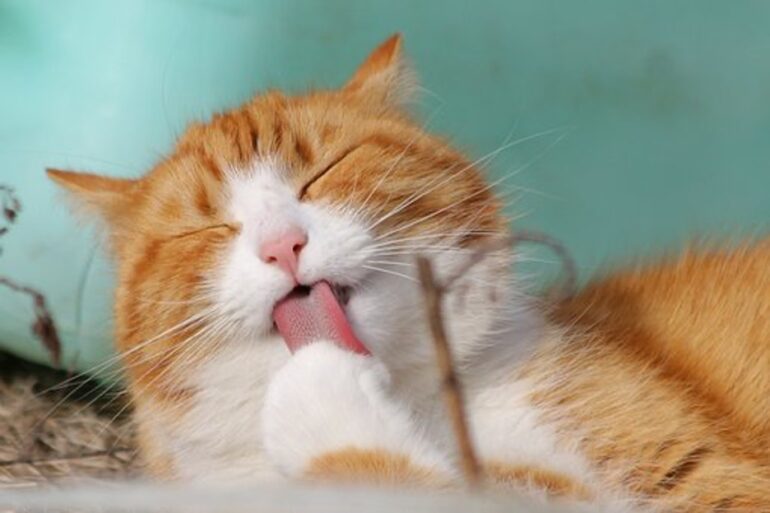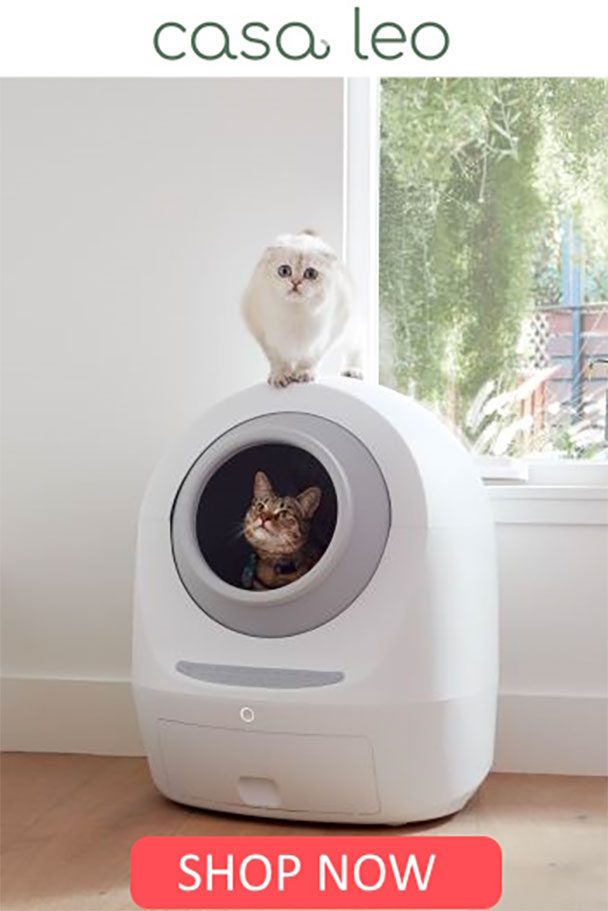You might have noticed that your cat reacts strangely when you’re breathing heavily. They may show some strange behaviors, like darting out of the room or exhibiting other signs of anxiety. This behavior can be concerning and confusing for many cat owners. Therefore, it is necessary to understand why your cat may have reacted in this way. A good understanding of this behavior will help you manage their comfort and well-being. So back to answering the question: Why does my cat freak out when I breathe heavily?
The two main reasons why your cat freaks out when you breathe heavily are because they think you are in great discomfort or because they feel that your behavior is threatening. There are also other possible reasons for this behavior. We will explore them in this article, and most importantly, we will offer some suggestions on how to prevent them.
How Cats Behave When They Feel Freaked Out
First, it is important to understand the behaviors cats exhibit when they are freaked out. Not all cats will show the exact same behavior when they feel freaked out by your heavy breathing. Just like humans, individual cats have different personalities, so the behavior they show will depend on their personalities. It has been observed that more dominant cats react aggressively, while others with quiet personalities behave in a more submissive way.
Your cat may growl at you, hiss at you, stare straight at you, twitch their tails, dilate their pupils and puff itself up to look as big as possible. These aggressive behaviors are often tied to dominant cats.
Submissive cats, on the other hand, show submissive behaviors like tucking their tail between their legs, crouching down to try and look small, raising one paw and lying down on their side. Some of these behaviors depend on their perception of your actions. For example, the way a dominant cat behaves when they feel threatened by your heavy breathing may not be the same way they react if they feel you’re in great discomfort.
Why Your Cat Freaks Out When You Breathe Heavily
1. Your cat may think you are a threat.
Because cats are very sensitive to sounds and vibrations, they might interpret your heavy breathing as a sign of threat. To them, they may feel that you’ve changed to become aggressive, and hence, they freak out.
Heavy breathing produces low frequencies. Cats have an acute sense of hearing, so your cat’s sensitive ears can easily pick up the low-frequency vibrations traveling through the air. They might be alarmed or unsettled when they hear this sound. This often triggers a fight-or-flight response in them. A cat’s natural survival instinct is to get in position when they hear or sense a sound similar to that of an advancing prey or predator. Despite being domesticated, this instinct never leaves them, so they’re always ready to act whenever they feel a sound is disturbing. While they interpret this sound as a sign of danger, you interpret their responses as a “freaking out” behavior.
Similarly, some cats can interpret heavy breathing as a form of hissing, so they may become frightened. Cats are natural enemies of snakes, and sometimes cats hiss at each other in displeasure.
2. Your cat may think you are in great discomfort.
Cats do not only freak out when they feel threatened. Cats have been known to be observant creatures. They’re able to detect changes in their surroundings as well as the emotional states of their human companions. If you suddenly begin to breathe more heavily than usual, your cat may freak out because they may interpret heavy breathing as a sign of anxiety, discomfort, pain, danger or that something isn’t right. In these circumstances, your cat’s reaction may be based on empathy, so they mimic your discomfort by showing a “freaked out” behavior. This is especially true for cats who have built deep ties with their owners and are emotionally sensitive.
3. They feel uncomfortable.
Cats may freak out from sudden heavy breathing out of confusion or unfamiliarity. Cats are animals of habit, so they feel more comfortable in familiar and predictable situations. They may become agitated in unfamiliar situations. For example, if you don’t breathe heavily around your cat on a regular basis, they could be reacting to a sudden, unexpected change in their environment. Unknown sounds and sensations can be unsettling and unpleasant for cats. This may make them flee to a secure location or respond defensively.
What To Do When Your Cat Freaks Out When You Breathe Heavily
If you are deeply concerned about your cat’s reaction to your heavy breathing, here are some steps you can take to help them adjust and feel more at ease.
1. Speak calmly to calm your cat down.
It is important to speak in a calm and reassuring tone, especially if your cat is freaking out because they feel threatened. Although cats do not understand our words, they can understand the tone and emotion behind your words. A kind gesture will calm them down.
2. Provide a safe space.
Providing a safe space can help reduce anxiety and create a sense of security for your cat. This can be done in two ways: moving away from your cat and avoiding physical touch. Moving away from your cat will give you the opportunity to control your breathing. You can move to another room and shut the door in order to prevent your cat from coming in. Similarly, preventing physical contact will help them calm down. You might want to cuddle them to make them feel safe or reassured, but this is a bad idea that might worsen the situation.
How To Make Your Cat Comfortable With Your Breathing Behavior
1. Practice gradual desensitization.
Gradual desensitization is an effective way to make your cat familiar with the sound of heavy breathing. This can be done by gradually introducing your “breathing sound” to your cat at a low volume and gradually increasing the volume over time until your cat becomes comfortable with it. Don’t forget to reward your cat with treats or affection when they show that they’re relaxed with the sound. Rewarding them is part of the desensitization procedure. It helps to reinforce the behavior that you want (i.e., you want your cat to stop freaking out). In order to keep getting rewarded, your cat will keep up with this new behavior.
2. Maintain a calm environment.
Your cat’s reactivity to the sound of heavy breathing can be decreased by lowering the level of stress in their environment. Limit loud noises and unexpected movements, and refrain from drastically altering their daily routine or their environment. Provide plenty of opportunities for mental and physical stimulation, such as interactive toys and scratching posts, and keep a regular schedule for feeding, playtime and rest.
3. Seek professional help.
It might be time to seek advice from your cat’s veterinarian or a licensed feline behavior specialist if your cat’s response to your rapid breathing is very strong or if their anxiety appears to be negatively affecting their general well-being. These experts can evaluate your cat’s behavior and provide tailored advice, which can include anxiety-relieving drugs or behavior modification methods.
4. Practice mindful breathing.
Consider engaging in mindfulness techniques like deep breathing exercises or meditation to help you relax if your heavy breathing is a sign of stress or anxiety. Your cat might notice that you’re more at peace and start to feel more at ease around you.
Final Thoughts
Heavy breathing can occasionally cause cats to behave strangely, which could be caused by their sensitivity to sounds, perception of distress, unfamiliarity or previous unpleasant experiences. Create a safe space, keep your home calm, gradually desensitize your cat to the sound and seek professional help, if necessary, to help your cat feel more at ease and secure. You can aid in the development of a solid, dependable bond with your cat by recognizing and fixing the root causes of their response.






